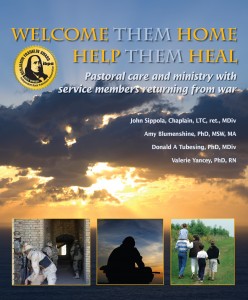Entitlements = Responsibilities
By Jacquelyn Ferguson, M. S.
In the 1980’s two young people we knew had baffling work expectations. One, an office worker, was upset because she didn’t get a raise when a colleague did. The other, an electrician, became indignant when his boss, the owner of the business, dropped him off at a job but didn’t stay to do the work herself.
Does their sense of entitlement seem off-base to you?
Some say today’s Millenial generation has a too-strong sense of entitlement. An example is college counselors who cite struggling students blaming their professors for being boring; like boring instructors cause bad grades.
Having a sense of entitlement, often representing unrealistic expectations, manifests itself in many ways. Aggressive drivers feel entitled to intimidate you out of their way. Some hurricane survivors expect an immediate government rescue. Older siblings feel entitled to greater respect from younger ones. Some poor people feel entitled to unending benefits. Some affluent people expect the best opportunities. The list goes on and on.
What do you feel entitled to? Are your expectations realistic?
A sense of entitlement carries a serious risk: the possible shirking of personal responsibility. The office worker blames the boss for not giving her a raise versus wondering, “What are my options?” in securing a raise. The students could ask the same question about getting better grades.
Instead, all are focused on how the other person is interfering with them getting what they want. As I’ve stated many times before, wanting the other person to change increases the stress of a situation because the other person is always beyond your control.
What’s within your control is figuring out your options. The students could study more, get tutoring, figure out how to pay attention even when bored.
No doubt everyone has certain rights and entitlements but for each one we must also accept their inherent responsibilities. You have the right to be respected. Your responsibility is to behave in ways that earns others’ respect; being reliable, honorable, respectful of others, etc.
In the above examples which responsibilities are being ignored?
* The office employee had the responsibility to figure out what’s rewarded in her job and what isn’t. Did her attitude inhibit her from getting the additional responsibilities that would have justified a raise? Did her very sense of entitlement grate on her boss?
* The electrician had the responsibility to know what he was hired to do and to do it; to understand his job responsibilities versus his boss’s. Plus, he needed to accept that the owner of a business can do pretty much what she wants. It’s her company.
* The students need to figure out how to learn and pass. Period.
Too frequently in our rights-oriented society we demand our entitlements with little thought to their corresponding responsibilities. This almost always leads to more anxiety if we passively wait for what we want. To increase success and lower stress, it’s important to identify and pursue the options that are within your control that can lead you toward your realistic expectations.
Jacquelyn Ferguson, M. S., is an international speaker and a Stress and Wellness Coach. Order her book, Let Your Body Win: Stress Management Plain & Simple.

